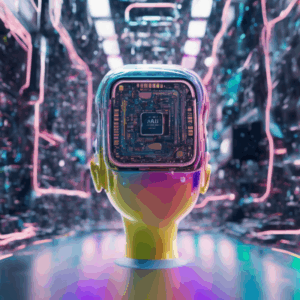
Decoding the Divine: How AI is Unraveling the Authorship of the Bible
The Bible, a timeless compendium of spiritual wisdom, cultural history, and profound stories, holds mysteries that have captivated scholars and believers alike for centuries. Now, thanks to advances in artificial intelligence, researchers are probing deep into this ancient text to uncover hidden linguistic patterns that may reveal the likely authors behind its various components. 🤖📜
As AI systems increasingly demonstrate capabilities in natural language processing and machine learning, they are redefining the boundaries of linguistic analysis. A new era of biblical scholarship is emerging—one that blends technological innovation with age-old questions about authorship, authenticity, and interpretation.
The Quest for Authorship: A Historical Context
The Bible’s composition spans over a millennium, encompassing numerous authors from various backgrounds and epochs. Scholars have long debated who penned specific books, employing methods like stylistic analysis, historical context, and textual comparison. However, these methods often yield inconclusive results due to the absence of definitive evidence.
AI now steps into this domain, offering powerful tools to analyze large volumes of text with precision and speed that human scholars cannot achieve alone. By applying algorithms designed to detect unique linguistic styles, researchers are beginning to paint clearer pictures of the Bible’s polyphonic nature.
How AI Works in Linguistic Analysis
At its core, AI leverages two primary techniques in linguistic analysis: machine learning and natural language processing (NLP).
- Machine Learning: Algorithms are trained on extensive datasets, learning to recognize patterns within texts. For instance, researchers input various biblical texts attributed to different authors, training the model to identify stylistic markers unique to each writer.
- NLP: This branch of AI focuses on understanding and generating human language. Tools like sentiment analysis, word frequency analysis, and syntax evaluation help reveal authorship clues, such as distinct vocabularies or preferred sentence structures.
Practical Applications and Key Findings
Recent studies employing these AI techniques have yielded intriguing findings. Researchers from institutions like Stanford and Oxford have utilized machine learning algorithms to analyze biblical texts, revealing patterns that challenge traditional views of authorship.
Key Findings:
- AI analysis suggests that the Gospel of Matthew may have been influenced more by a common source than previously thought, highlighting collaborative authorship in early Christian texts.
- Textual variances in the Psalms indicate multiple contributors, suggesting a more complex development of these ancient songs than the singular authorship notion.
- The Book of Isaiah has been segmented into contributions from different authors based on linguistic facets, pointing to a more distributed authorship model.
“The beauty of biblical texts lies in their diversity, but the challenge is to discern that through a lens clouded by centuries of interpretation,” explains Dr. Sarah Klein, a computational linguist leading one such AI study. “With AI, we can now sift through legacy and extract insights that were previously out of reach.” 📚
Challenges and Controversies
Despite exciting advancements, the intersection of AI and biblical authorship research is not without its complexities. Critics caution against overreliance on algorithms, emphasizing that human interpretation remains vital in contextualizing findings.
Moreover, the ethical implications surrounding AI’s use in religious studies are significant. Can we truly approach sacred texts with a purely scientific lens? How do we reconcile historical faith with modern technology? These questions fuel ongoing debates within the academic and religious communities.
The Future of Biblical Scholarship
The integration of AI into biblical studies heralds a new chapter in our understanding of ancient texts. As researchers continue to refine their methodologies, we are likely to see more nuanced findings that not only illuminate the authorship but enrich our comprehension of the cultural and spiritual landscape of the time.
As AI evolves, so too will its application in the humanities, empowering scholars to explore questions that intertwine faith, history, and science. The mysteries of the Bible, while complex, may yield new revelations that resonate across generations, thanks to the insights gleaned from artificial intelligence. 🌟








